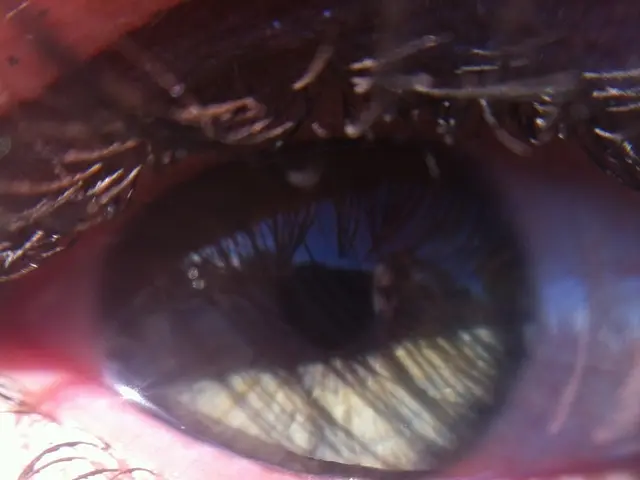Rapid, Severe Rosacea: Understanding Causes, Signs, and Remedies
Rosacea Fulminans: The Intense, Sudden Skin Issue
Rosacea Fulminans, also known as pyoderma faciale, is an extreme variant of rosacea marked by sudden inflammation and painful nodules, pustules, and plaques mostly on the face. While we're still figuring out the exact cause, some potential triggers and related conditions have been spotted, shedding light on this puzzling skin condition.
Potential Triggers for Rosacea Fulminans
- Hormonal Mayhem: Hormonal fluctuations like those during menstruation, pregnancy, or hormonal disorders can bring about rosacea flare-ups, including severe ones.
- Genes Play a Role: Family history or genetics might make someone more susceptible to rosacea fulminans.
- Weather and Lifestyle: High humidity, cold or dry weather, pollution, and friction from tight clothing can inflame the skin and potentially trigger rosacea flares.
- Medications and Skin Goods: Certain medications (such as corticosteroids and lithium) and comedogenic cosmetic and hair products can lead to severe skin inflammation.
- Immune System Imbalance: An overactive immune response to skin bacteria and potential autoimmune components play a part in the acute inflammatory onset in rosacea fulminans.
- Emotional Ups and Downs: Psychological stress and poor skincare practices can aggravate inflammatory skin conditions and potentially bring about intense rosacea episodes.
Associated Conditions with Rosacea Fulminans
- Rosacea Family: Rosacea fulminans is a severe form of rosacea and often occurs alongside other rosacea subtypes Involving vascular and inflammatory skin changes.
- Acne Connection: Rosacea fulminans shares some clinical features and triggers with acne fulminans, like genetic factors and immune dysregulation. Both conditions may share common inflammatory pathways.
- PCOS and Hormonal Disorders: Hormonal disorders like PCOS that cause hormonal imbalance might result in both acneiform eruptions and rosacea flares.
- Allergies and Skin Sensitivity: People with sensitive skin, eczema, or a history of skin allergies might be more prone to severe inflammatory reactions, including rosacea fulminans.
In a nutshell, rosacea fulminans might be sparked by a complex mix of hormonal fluctuations, genetic predisposition, environmental exposures, immune system imbalances, medication effects, and skin sensitivity factors. These triggers often overlap with those seen in acne and other rosacea subtypes, highlighting the multi-faceted nature of this intense inflammatory skin condition.
- The overactive immune response in rosacea fulminans may also be linked to chronic diseases like other forms of rosacea, making it a significant aspect of health and wellness.
- Dermatology plays a crucial role in identifying and managing rosacea fulminans, as it shares clinical features with chronic diseases such as acne fulminans and other rosacea subtypes.
- Given its chronic nature and potential associations with other medical conditions, rosacea fulminans is an important area of scientific study, shedding light on the intricacies of skin conditions and inflammatory responses.
- To minimize the severity of rosacea fulminans, it's essential to maintain good skin care, avoiding comedogenic cosmetic and hair products, and adopting a gentle skincare routine, as poor skincare practices can exacerbate the condition.








